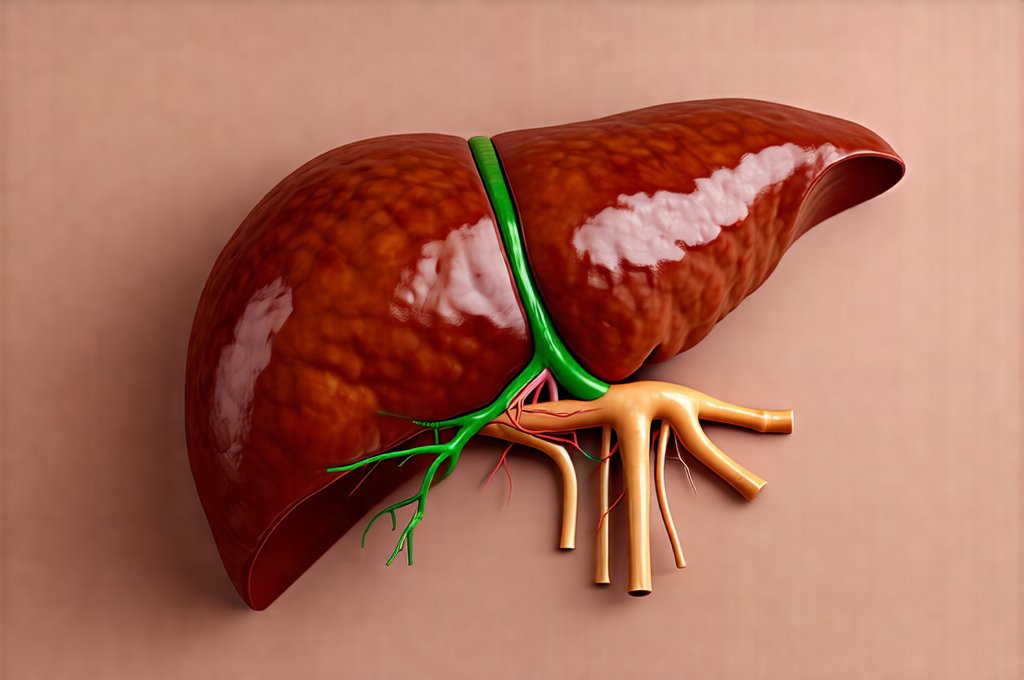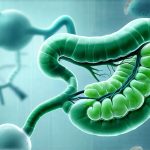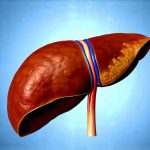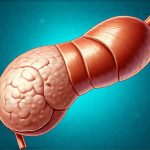The digestive system is often considered the cornerstone of overall health, but its efficiency isn’t solely dependent on what we eat; it’s deeply intertwined with the function of other vital organs, most notably the liver. Many people associate the liver primarily with detoxification, and while that’s a critical role, its functions extend far beyond simply filtering toxins. The liver is instrumental in processing nutrients from food, producing bile for fat digestion, storing glycogen for energy, and regulating blood sugar levels – all processes directly impacting how well we digest and absorb what we consume. When the liver’s capacity to perform these tasks becomes compromised, even subtly, it can create a ripple effect throughout the digestive system, leading to a range of uncomfortable and often confusing symptoms.
Understanding this connection requires recognizing that the liver isn’t an isolated organ; it exists within a complex network. Congestion, meaning an overburdening or slowing down of its normal functions, doesn’t necessarily imply disease but rather a state where the liver is struggling to keep up with demands. This can stem from various factors including diet, lifestyle, environmental toxins, and stress levels. The consequences of this struggle often manifest as digestive complaints because many of the liver’s key roles are intrinsically linked to optimal digestion. Recognizing these potential links isn’t about self-diagnosing but rather about understanding the body’s interconnectedness and exploring ways to support overall health and well-being. In cases where you suspect a deeper issue, it is important to understand if can one intolerance lead to another.
The Liver’s Role in Digestion: A Closer Look
The liver plays a surprisingly central role in multiple stages of the digestive process, far beyond simply detoxifying what remains after food is broken down. Its primary contribution begins with bile production. Bile is essential for emulsifying fats, meaning it breaks them down into smaller droplets so they can be more easily digested and absorbed by the small intestine. Without sufficient bile, fat digestion suffers, leading to symptoms like bloating, gas, diarrhea (specifically fatty stools), and malabsorption of fat-soluble vitamins – A, D, E, and K. Beyond this crucial function, the liver also processes carbohydrates and proteins, converting them into usable forms for energy and other bodily functions. It stores glycogen, a readily available glucose source, to maintain stable blood sugar levels which influences digestive motility and overall energy levels needed for digestion.
A congested liver can struggle to produce adequate amounts of high-quality bile. This isn’t always about quantity either; the composition of bile is important. Factors like a diet high in processed foods or excessive alcohol consumption can affect bile consistency, making it thicker and less effective. Furthermore, the liver helps regulate intestinal motility – the movement of food through the digestive tract. When liver function slows down, this can lead to constipation, as the intestines struggle to move waste efficiently. Conversely, rapid transit time due to imbalances can result in diarrhea. The intricate balance required for healthy digestion is therefore heavily reliant on a functioning liver. It’s important to consider if digestive stress could be contributing to other health issues.
Finally, the liver’s detoxification role, while not directly involved in breaking down food, impacts digestive health significantly. When the liver is overwhelmed with toxins, it prioritizes processing those over nutrient metabolism and bile production, further impacting digestive processes. This creates a vicious cycle where poor digestion leads to increased toxin load, which then exacerbates liver congestion, leading to more digestive issues. It’s this interconnectedness that makes addressing liver health so important for overall wellbeing and particularly digestive harmony.
Symptoms Suggesting Liver Congestion & Digestive Links
Recognizing the symptoms associated with potential liver congestion can be tricky because they often mimic those of other digestive disorders. However, a cluster of specific symptoms, alongside dietary and lifestyle factors, might indicate a connection. One common sign is blooting, especially after meals containing fats. This isn’t just typical fullness; it’s an uncomfortable distension that persists for hours. Other indicators include:
- Frequent gas and indigestion
- Changes in stool consistency (diarrhea or constipation)
- Nausea, particularly after eating fatty foods
- A feeling of fullness even after small meals
- Right-sided abdominal discomfort or pressure, not necessarily pain but a general sense of heaviness.
These digestive symptoms often accompany other non-digestive signs that can point toward liver stress. These include fatigue (even with adequate sleep), skin issues like rashes or eczema, sensitivity to certain smells or chemicals, and even mood swings. It’s important to note these are indicators not diagnoses; they should prompt further investigation if persistent. The key is looking at the whole picture – digestive symptoms coupled with other signs of potential liver stress. If you experience frequent heartburn, it might be a sign that acid reflux is contributing to your symptoms.
Supporting Liver Health Through Dietary Changes
Diet plays a pivotal role in both causing and alleviating liver congestion. A diet consistently high in processed foods, sugar, saturated fats, and alcohol places a significant burden on the liver’s detoxification pathways. Conversely, incorporating liver-supportive foods can significantly improve its function. Some key dietary changes include:
- Reducing Sugar Intake: Excessive fructose intake is directly linked to non-alcoholic fatty liver disease (NAFLD).
- Limiting Processed Foods: These often contain additives and toxins that the liver must process, adding to its workload.
- Incorporating Bitter Greens: Arugula, dandelion greens, and radicchio stimulate bile production, aiding fat digestion.
- Increasing Fiber Intake: Fiber helps bind toxins in the gut, reducing their absorption and lessening the burden on the liver. Sources include fruits, vegetables, whole grains, and legumes.
- Hydration: Adequate water intake is crucial for all bodily functions, including liver detoxification.
Furthermore, focusing on nutrient-dense foods provides the building blocks the liver needs to function optimally. This includes lean proteins, healthy fats (like avocados and olive oil), and a rainbow of colorful fruits and vegetables rich in antioxidants. A dietary approach that prioritizes whole, unprocessed foods is often the first step toward supporting liver health and improving digestive function. Food sensitivities can also play a role.
The Role of Hydration & Gut Health
Hydration is frequently overlooked but essential for optimal liver function. Water is not only needed for detoxification processes, but also for maintaining healthy bile flow. Dehydration can lead to thicker bile, making it harder to digest fats effectively. Aiming for at least eight glasses of water daily, and potentially more depending on activity level and climate, is a good starting point. Beyond water, incorporating herbal teas known for their liver-supportive properties (like dandelion root or milk thistle) can provide additional benefits – always check with a healthcare professional before introducing new supplements.
Gut health is inextricably linked to liver health. A healthy gut microbiome helps reduce the amount of toxins reaching the liver from the intestines and supports efficient detoxification. Factors that disrupt gut health, like antibiotic use, stress, and a diet low in fiber, can increase the burden on the liver. Supporting gut health involves:
- Probiotic-rich foods: Yogurt, kefir, sauerkraut, and kimchi introduce beneficial bacteria to the gut.
- Prebiotic-rich foods: Onions, garlic, bananas, and asparagus feed existing beneficial bacteria.
- Minimizing antibiotic use: Only take antibiotics when absolutely necessary and under medical supervision.
A healthy gut reduces inflammation throughout the body, including in the liver, promoting optimal function and improving digestive health. It’s a synergistic relationship where addressing one supports the other.
Stress Management & Lifestyle Factors
Chronic stress significantly impacts liver function by increasing cortisol levels. Elevated cortisol can disrupt hormonal balance, impair bile production, and exacerbate inflammation – all contributing to digestive issues. Implementing effective stress management techniques is therefore crucial for supporting both liver and digestive health. Techniques like:
- Regular exercise (yoga, walking, swimming)
- Mindfulness meditation or deep breathing exercises
- Spending time in nature
- Prioritizing sleep (aiming for 7-8 hours per night)
are all effective ways to mitigate the negative effects of stress. Additionally, minimizing exposure to environmental toxins – found in cleaning products, pesticides, and personal care items – reduces the liver’s detoxification workload. Choosing organic foods when possible and opting for natural cleaning alternatives can significantly lessen this burden. Lifestyle factors are often overlooked but are powerful determinants of both liver health and digestive wellbeing. Digestive stress can also impact overall wellness.
Disclaimer: This article is intended for informational purposes only and does not constitute medical advice. If you are experiencing persistent digestive issues or have concerns about your liver health, please consult with a qualified healthcare professional for proper diagnosis and treatment.


















